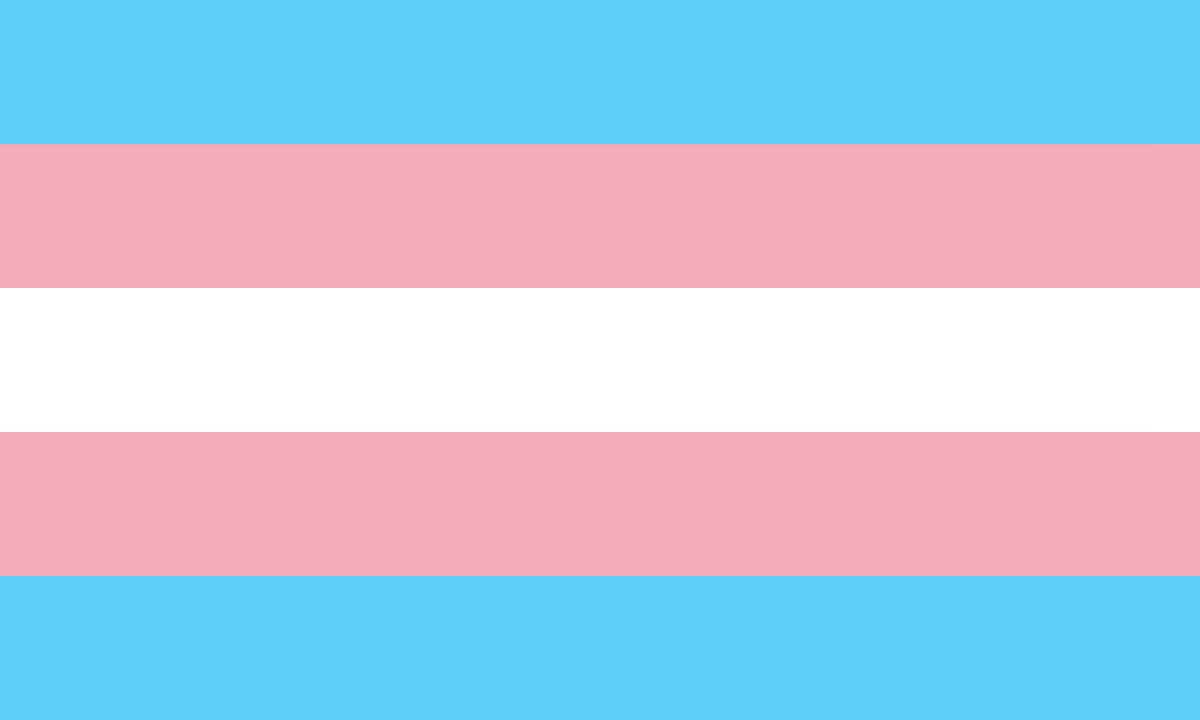Polycystic Ovary Syndrome is the most common endocrine condition, affecting an estimated 8-13% of people with ovaries globally, and up to 70% remain undiagnosed.
This chronically complex condition is characterised by a variety of symptoms, including:
- Irregular menstrual cycles.
- Acne.
- Unwanted hair growth or loss.
- Infertility.
September is PCOS Awareness Month, and to raise awareness and shed some light on this misunderstood condition, we’re putting our best glasses and beret on to Mythbust the top 5 PCOS misunderstandings and misconceptions.
To raise awareness and shed some light on this misunderstood condition, this PCOS Awareness Month, we’re putting on our best glasses and beret to
It is not uncommon for a condition so under-researched and under-represented to be completely misunderstood by sufferers, professionals, and the general public. However, this becomes dangerous when
Myth 1: If You Have Polycystic Ovaries, You Have PCOS
Okay, repeat after us: You can have Polycystic Ovaries without having PCOS. Now rinse and repeat. Aaaaaand one last time. Louder, for all the folks up the back!
You might ask yourself, “But how can someone have Polycystic Ovaries without having Polycystic Ovary Syndrome? Make it make sense!” And to that, we say good question. As we’ve touched on before, PCOS is so much more than a condition that solely impacts the ovaries.
This means that while many folks with PCOS can have polycystic ovaries, that’s not necessarily the case for every individual with the condition. It is possible to have polycystic ovaries without having Polycystic Ovary Syndrome, and it is also possible to have been diagnosed with Polycystic Ovary Syndrome but have ovaries that are not polycystic.
In fact, the presence of polycystic ovaries is considered normal in menstruating adolescents, with ultrasounds confirming that up to 70% of young menstruators have polycystic ovaries. Polycystic Ovaries are also common among those who have been prescribed The Pill. The Pill works to suppress the communication between the brain and your ovaries – essentially telling your ovaries to pop the brakes on – which stops ovulation altogether.
We’ll repeat it one more time for good measure; having polycystic ovaries does not mean you have PCOS. The two are not synonymous.
Myth #1: Busted.
Myth 2: PCOS Can Be Cured With The Pill
While it can help to alleviate symptoms for some individuals (such as acne and excess hair growth), unfortunately, The Pill doesn’t cure PCOS. In fact, it doesn’t even treat it.
Because The Pill doesn’t address or treat any of the underlying causes of this complex hormonal disorder, we like to think of it as the OG bandaid solution. It’s basically the medical equivalent of trying to fix a leaky pipe with duct tape. Sure, we’ve temporarily stopped the water from gushing out of the pipe by wrapping the problem area with tape, but, we haven’t checked for broken seals, clogged lines, corrosion, damaged parts, or loose bits and pieces – all factors that could be responsible for the leaky pipe. Because the root cause hasn’t been identified or treated, it’s only a matter of time before the tape will lose its effectiveness and water begins spilling out again.
The same thing applies to your health; bandaid solutions will only get you so far.
Another thing your doctor *might* have forgotten to mention while they were too busy highlighting the countless “benefits” of The Pill – it’s only effective for as long as you take it. So, while your skin might be clearer and you might think that you’ve got regular periods for the first time in gazillion years (unfortunately you don’t actually get a period while on The Pill. The bleeding you experience every 28 or so days is actually just a “pill bleed”...but that’s a topic for another day), these benefits are only temporary.
And to be clear, there is still no known cure for PCOS. But, there are ways to improve symptoms and The Pill can help with that…temporarily. If The Pill works for you - all power to you - just know that your symptoms are likely to come back if you do decide to stop taking it.
TLDR; if you decide to stop taking The Pill, be prepared for all the symptoms it promised to cure to come running back with a vengeance.
Myth #2: Busted.
Myth 3: You Can’t Manage PCOS Symptoms Naturally
Unfortunately, many folks with PCOS have been placed in the too-hard-to-treat pile and told by their trusted healthcare providers that their condition is just something they have to live with – or they’re given a prescription for The Pill as the only way to reduce their symptoms.
If you ask us, that’s a load of BS.
People with PCOS deserve treatment, they deserve answers, and they deserve to have a say in the way they are treated. It should go without saying, but they don’t deserve to be siloed, branded as too difficult to treat, and ignored by the very healthcare providers they trusted to treat them.
Spoiler alert
No one can tell you what you can and can’t do, not even the keyboard warriors on Facebook groups.
No one has the right to shame you or make you feel bad about any decisions you make relating to YOUR health – keyboard warriors on Facebook groups, we’re talking about you!
The right care team will work alongside you (not making the decisions FOR you) to help build a comprehensive care plan that will help you manage your PCOS symptoms in a way that aligns with your wishes and your lifestyle. Through education and empowerment, you’ll find that there are so many ways to manage your PCOS, whether that be conventionally, naturally, or a mixture of both.
What Types of Natural Therapies Can Help Treat PCOS?
Supplements
Dr. Melissa Catanzarite says, “Myoinositol is the main supplement used to help manage PCOS symptoms. After roughly 3 months at 2g daily, patients will begin to see a reduction in insulin resistance and a reduction in androgen levels. These factors help assist with normal menstruation.”
Acupuncture
Several studies have found that acupuncture is a safe and effective treatment option for treating PCOS. Acupuncture has been reported to:
- Increase blood flow to the ovaries.
- Reduce ovarian volume.
- Decrease the amount of ovarian cysts.
- Control hyperglycaemia by increasing insulin sensitivity and decreasing blood glucose levels.
- Reduce cortisol levels.
Lifestyle Modifications
Lifestyle modifications are considered to be the first-line treatment for the management of PCOS.
No, we don’t mean fad diets, unrealistic calorie deficits or hours of torturous exercise that leave you filled with feelings of self loathing and have you rethinking all of your previous life decisions. What we are talking about though is consuming a variety of nutrient-dense foods that cover all of your basic food groups, limiting your intake of saturated and transfats, cholesterol, added sugars, salt, and alcohol and getting a quick, 30-minute workout in several times a week.
Sounds pretty doable, right?
To sweeten the deal even more, studies have found that even just consuming a balanced diet can have positive impacts on PCOS and decrease symptoms such as mood swings, irregular menstrual cycles, and stress.
If the thought of utilising natural therapies for PCOS management is making your heart sing, check out our article ‘Hold The Pill, Please: 4 Ways to Manage PCOS Symptoms Without Hormonal Contraception Pills’.
Because PCOS looks so different on everyone, treatment options do too. And here at Hazel, we recognise that and we support you and whatever that means for you.
Through education and empowerment, you’ll find that there are so many ways to manage your PCOS, whether that be conventionally, naturally, or through a mixture of both.
Myth #3: Busted.
Myth 4: You Can’t Get Pregnant if You Have PCOS
One of the most prevalent associations made by the general public about PCOS is the link between the condition and infertility. One research paper found that even after trying to obtain information on PCOS and fertility from a range of different sources (such as healthcare providers, the internet, other women diagnosed with the condition, PCOS support groups, and online forums), folks found it difficult to get their hands on any information that was relevant, reliable and up-to-date.
Shocked? It gets worse.
A whopping 33% of Australians with PCOS claimed they were unable to access sufficient information about PCOS and fertility, while a further 57% of Australians reported difficulties discussing the many different aspects of PCOS (including fertility difficulties) with their healthcare providers.
As a result of misinformation and a lack of resources, a large portion of those living with PCOS have been led to believe that they will be unable to fall pregnant. While we acknowledge that PCOS is a common driver for fertility issues, a PCOS diagnosis does not act as a definitive guarantee that you will be unable to have children.
Studies have shown that many individuals experiencing infertility as a result of PCOS have been able to successfully conceive with the assistance of medications that promote ovulation and support from fertility specialists.
If you’re ready to start trying to conceive, it is important that you do so with the support of a trusted specialist who truly understands the complexities of the condition, as well as the sensitivities and emotions that are associated with what can be such a challenging, yet rewarding, journey.
Remember:
- You are not alone in this.
- PCOS is not always an infertility diagnosis.
Dr. Melissa notes that there have been cases where individuals with PCOS might think that they’re infertile and are unable to conceive but then accidentally fall pregnant. But how is this possible? Kind of like perimenopause, Dr. Melissa says this phenomenon occurs when an individual with an otherwise irregular cycle finally ovulates, but because of the irregularities associated with their cycle, they had no idea ovulation occurred.
Myth #4: Busted.

Myth 5: If You Have PCOS, You Just Need to Lose Weight
Not only is this myth super fatphobic (ew), but it’s also fake news.
Don’t believe us?
While a balanced diet and regular exercise have been shown to benefit those with Insulin-Resistant PCOS (link to 4 types article) by improving the use of insulin within the body and helping to regulate hormones, there is little evidence to suggest that losing weight actually has any impact on PCOS.
Further from this, we’re sorry to burst any bubbles here (no we’re not), but studies have also shown that there is limited data to suggest that obesity itself drives the development of PCOS and vice versa. This means that an individual’s weight has little to do with the likelihood of whether or not they develop Polycystic Ovary Syndrome in their lifetime, or not.
When we said PCOS was incredibly complex in nature, we meant it. This condition does not discriminate and can affect bodies of all shapes, sizes, colours, and abilities.
Fatphobic doctors, take note!
Myth #5: Busted.
How Is PCOS Diagnosed?
Difficult to understand does not mean impossible to diagnose.
In order to be diagnosed with PCOS, patients must meet two out of three of the following criteria:
- Clinical and/or biochemical hyperandrogenism (excess production of male hormones)
- Oligo and Anovulation (irregular cycles or non-ovulatory cycles)
- Polycystic ovaries seen on ultrasound
Despite looking straightforward, the road to receiving a PCOS diagnosis is a lengthy and exhausting process as a result of gaps in how the diagnostic criteria is understood and applied by healthcare professionals. As if that wasn’t enough, a lack of practitioner knowledge in the PCOS space has helped to add further complexity to an already misunderstood condition and further segregate sufferers from the rest of society.
Here at Hazel, we believe in practising patient-centred care and empowering patients to take the driver’s seat when discussing treatment plans. We believe in holistically healing the whole you by addressing your specific concerns, symptoms and conditions.
Ready to receive the answers and treatment you’ve always deserved? Join Hazel now.

- Azziz R. Introduction: Determinants of polycystic ovary syndrome. Fertility and Sterility . 2016;106(1). doi:doi.org/10.1016/j.fertnstert.2016.05.009
- Bani Mohammad M, Majdi Seghinsara A. Polycystic Ovary Syndrome (PCOS), Diagnostic Criteria, and AMH. Asian Pac J Cancer Prev. 2017;18(1):17-21. Published 2017 Jan 1. doi:10.22034/APJCP.2017.18.1.17
- Boyle J, Teed HJ. Polycystic ovary syndrome: An update. Australian Family Physician . 2012;41(10):752-756.
- Ching, H.L., Burke, V. and Stuckey, B.G.A. (2007), Quality of life and psychological morbidity in women with polycystic ovary syndrome: body mass index, age and the provision of patient information are significant modifiers. Clinical Endocrinology, 66: 373-379. https://doi.org/10.1111/j.1365-2265.2007.02742.x
- Deswal R, Narwal V, Dang A, Pundir CS. The Prevalence of Polycystic Ovary Syndrome: A Brief Systematic Review. J Hum Reprod Sci. 2020;13(4):261-271. doi:10.4103/jhrs.JHRS_95_18
- Dunne N, Slater B. A Word About PCOS . In: The Natural Diet Solution for PCOS and Infertility: How to Manage Polycystic Ovary Syndrome Naturally. Health Solutions Press; 2006:19-23.
- Lim C, Ng R, Cheng N, Zhang G, Chen H. Acupuncture for polycystic ovarian syndrome. Cochrane Database of Systematic Reviews 2019, Issue 7. Art. No.: CD007689. DOI: 10.1002/14651858.CD007689.pub4
- Melanie E Gibson-Helm, Isabelle M Lucas, Jacqueline A Boyle, Helena J Teede, Women’s experiences of polycystic ovary syndrome diagnosis, Family Practice, Volume 31, Issue 5, October 2014, Pages 545–549, https://doi.org/10.1093/fampra/cmu028
- Polycystic ovary syndrome. Family Planning NSW. April 8, 2019. Accessed September 21, 2023. https://www.fpnsw.org.au/factsheets/individuals/gynaecological-health/polycystic-ovary-syndrome.
- Polycystic ovary syndrome. World Health Organization. June 28, 2023. Accessed September 21, 2023. https://www.who.int/news-room/fact-sheets/detail/polycystic-ovary-syndrome.
- Presswala B, De Souza LR. The diagnostic experience of polycystic ovary syndrome: A scoping review of patient perspectives. Patient Education and Counseling. 2023;113:107771. doi:10.1016/j.pec.2023.107771
- S Holton, K Hammarberg, L Johnson, Fertility concerns and related information needs and preferences of women with PCOS, Human Reproduction Open, Volume 2018, Issue 4, 2018, hoy019, https://doi.org/10.1093/hropen/hoy019
- Trent ME, Rich M, Austin SB, Gordon CM. Fertility concerns and sexual behavior in adolescent girls with polycystic ovary syndrome. Journal of Pediatric and Adolescent Gynecology. 2003;16(1):33-37. doi:10.1016/s1083-3188(02)00205-x
- Walter K. What Is Polycystic Ovary Syndrome? JAMA. 2022;327(3):294. doi:10.1001/jama.2021.19776








.avif)







